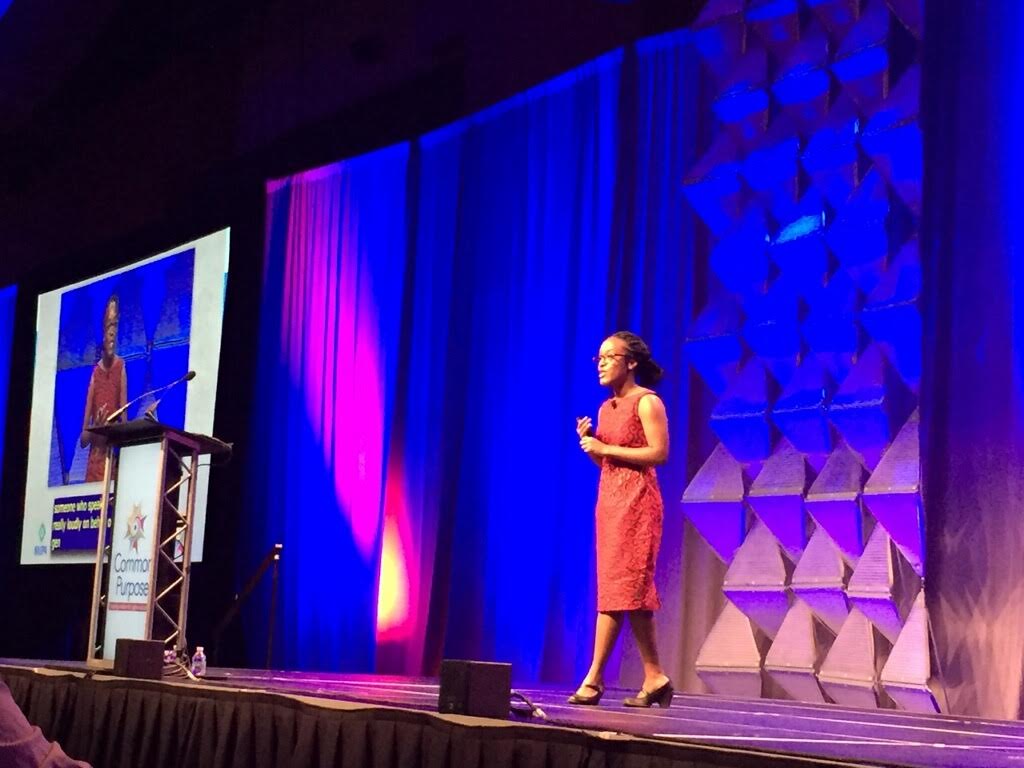A writer, author, and higher educational professional, among other incredible accomplishments, Amma Marfo is a huge advocate for creativity and humor.
We got to interview her about her work, her passions, and her career going forward.
What do you do for a living, and why is it awesome?
In truth, I consider myself a lot of things! First and foremost, I am a higher education speaker and writer. I travel to colleges and universities and work with students in leadership roles to help them develop skills that help them work well with one another, and to translate those skills into ones they can use in their careers.
What are you most excited about discussing about as a higher education speaker? What issues do you think most need to be addressed?
I worked on campuses with students for almost ten years before becoming a speaker and consultant. I love working with college students. It’s a time of life that has such potential, and the things that happen during those years make a huge difference—the people you meet, the things you learn, the abilities and lifelong pursuits you discover. With that said, I worry that the stakes are getting too high. It doesn’t have to be a “make or break” four years… or five… or six—however long it takes! It’s a time to learn and have fun, and that learning and fun can continue—has to continue—once you leave. The goal of my work is addressing that.
You call yourself an “outspoken advocate” for creativity and humor. How do you incorporate those values into your daily life as well as in your work?
College has become a time of telling people “this is your last chance to have fun, then life hits you and you have to be professional.” Is that true? Yes… and no. The fun doesn’t have to stop once you cross that stage. The learning doesn’t have to stop once you cross that stage. By living a life, and taking on my work, in a way that continues to evolve while staying something I enjoy, I hope to espouse that value to the students and staff that I work with.
What are your hopes for your future and the future of your career?
I don’t have an exact answer for that—it changes all the time! I love writing, and like challenging myself to do more of that and in different ways. Hopefully another book, and definitely more blogging. I also really like helping others tell their stories, and like to do so by coaching authors through the process of self-publishing.
The overarching goal, for me, is to keep helping people live lives that they enjoy, do work that they’re proud of, and realize that life—work, play, whatever—can be more fun than most of us have been led to believe.
You’ve written two books in your career. Tell us more about why you chose the topics that you did, and how the writing and publishing process has changed your experience.
I’ve written two books about introverts in higher education. The first came out in 2014, and was about the professionals (faculty and staff) that work with college students; the second came out the following year, and was about how to take what we know about introverted students and their needs, and how to create meaningful leadership and involvement experiences that allow them to shine instead of being shouted over.
I started doing research about introversion about six years ago, and quickly realized that there are parts of the college experience that are harder for introverts. Jobs and leadership positions go to students who are effortlessly expressive, quick to respond, and visible. Lots of spaces and work emphasize groups and conversation. Introverts can do these things, but sometimes adjustments can be made to make them easier to do. Getting to share that information with people that needed it drove me to write and publish on the topic.
Those books did a lot for me. It didn’t just establish me as an author, something I’d wanted since I was young, but it gave me confidence. There was a space where I could be heard, where people wanted to read and hear what I had to say. And it continues to move me every time I talk to someone who says “I read your book,” or “I loved your book,” or—best of all—“Your book really helped me.” I would never have had the confidence to go out on my own as a self-employed professional without the boost that writing and it being well-received by the target audience, gave me.
Do you have any words of advice for young girls interested in writing?
You have to start. You become a writer once you start writing. That’s it. Not once you start a blog, or publish a book, or get your first check for it, but when you start. Don’t worry about being amazing early on, don’t worry about having a lot of readers, don’t worry about being right. Just write to find your voice—find out what it sounds like, how you want it to sound, and what you can do to bridge the gap. It’s worth every bit of work it takes to get there.
You can learn more about Amma Marfo from her website or follow her on Twitter.




comments